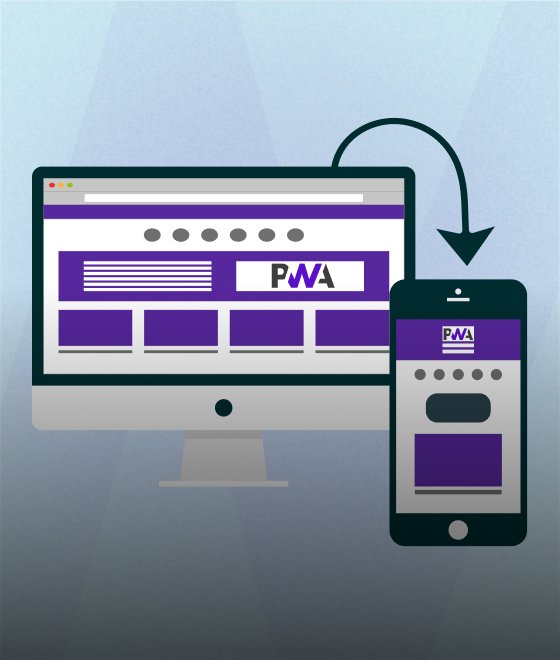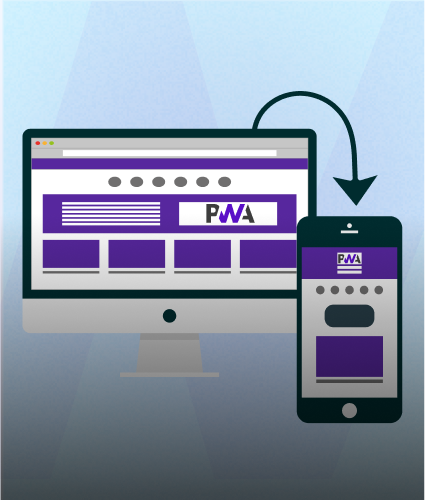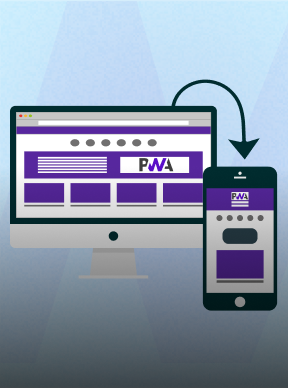In the ever-evolving panorama of technology, cloud computing has emerged as a sport-changer for businesses of all sizes. Within this realm, Platform-as-a-Service (PaaS) stands out as a powerful answer that permits agencies to streamline their improvement techniques and leverage the blessings of the cloud.
In this blog, we will delve into the world of PaaS in cloud computing, exploring its features, benefits, and the way it is able to assist businesses thrive inside the digital generation.
Understanding PaaS
What is PaaS?
PaaS, brief for Platform-as-a-Service, is a cloud computing version that offers developers with a prepared-to-use platform to build, installation, and control applications. Unlike Infrastructure-as-a-Service (IaaS), which offers virtualized computing assets, and Software-as-a-Service (SaaS), which offers software applications over the internet, PaaS specializes in the underlying platform and gear required for software development.
Key Components of PaaS
PaaS encompasses several additives that work together to facilitate the improvement and deployment of packages. Some of the key additives encompass:
Operating System:
PaaS solutions include pre-configured running structures that provide a foundation for software improvement. This gets rid of the want developers to worry about putting in place and handling the underlying infrastructure.
Development Tools:
PaaS structures provide a complete set of improvement tools, along with programming languages, libraries, frameworks, and integrated improvement environments (IDEs). These tools permit developers to write down, look at, and debug applications correctly.
Database Management Systems:
PaaS companies offer managed database services, permitting builders to store, retrieve, and manipulate information seamlessly. These offerings frequently aid famous database technologies, which includes My SQL, PostgreSQL, or NoSQL databases.
Middleware:
PaaS includes middleware components that facilitate communication among various software packages and offerings. This simplifies the integration manner and allows builders to create scalable and interconnected structures.
Choosing a PaaS Provider
When it comes to selecting a Platform-as-a-Service (PaaS) provider, thorough evaluation and consideration of different factors are vital to make sure the right match for your organization's desires. Expanding on the elements stated earlier, right here are a few additional points to don't forget:
Vendor Reputation and Stability
Before committing to a PaaS provider, it's important to evaluate the seller's popularity and stability in the market. Look for installed companies with a song report of handing over dependable offerings and continuous innovation. Research purchaser evaluations, industry scores, and awards to benefit insights into the company's reputation and purchaser satisfaction ranges. A legitimate and stable supplier instils self-assurance within the toughness and reliability in their offerings.
Scalability and Performance
Scalability is an important component of PaaS, permitting corporations to handle growing workloads and accommodate future boom. Evaluate the scalability capabilities presented by using the PaaS provider, along with automatic scaling, load balancing, and useful resource allocation. Assess their potential to address surprising spikes in traffic and make certain most efficient overall performance during peak periods. A strong and scalable PaaS platform guarantees that your programs can seamlessly develop alongside your business.
Integration Capabilities
Consider the integration talents of the PaaS platform with other services and structures for your enterprise's environment. Evaluate whether the issuer gives pre-constructed connectors, APIs, and integration equipment for famous services inclusive of databases, messaging systems, and third-birthday party applications. Smooth integration with existing infrastructure and gear simplifies the improvement and deployment approaches, saving time and effort.
Data Management and Backup
Data is an asset for any enterprise, and ensuring its protection and availability is of utmost significance. Evaluate the PaaS company's information control and backup mechanisms. Look for functions such as automated backups, information replication across a couple of areas, and statistics recuperation options. Consider their records protection policies, encryption techniques, and compliance with applicable facts rules to make sure the safety and integrity of your facts.
Vendor Lock-in and Portability
Consider the capacity for vendor lock-in while selecting a PaaS issuer. Evaluate whether the company's offerings are constructed on open requirements and technology, taking into account clean migration and portability of programs inside the future. A PaaS platform that helps industry-widespread technologies and gives alternatives for exporting or migrating programs presents flexibility and mitigates the threat of being locked into a particular issuer.
Geographic Availability and Latency
If your commercial enterprise operates in multiple areas or requires low-latency access to the PaaS platform, recall the geographic availability of the issuer's facts centers. Choose a issuer with statistics facilities strategically located to reduce network latency and make certain premier overall performance in your programs across extraordinary geographic areas.
Security and Compliance
Security should be a pinnacle precedence whilst selecting a PaaS issuer. Assess the security measures applied with the aid of the issuer, along with facts encryption, get right of entry to controls, intrusion detection, and vulnerability management. Verify their compliance with enterprise requirements and policies applicable for your commercial enterprise, such as ISO 27001, SOC 2, or GDPR. A strong recognition on security and compliance guarantees the safety of your applications and records.
Vendor Support and SLAs
Evaluate the level of guide furnished by the PaaS vendor. Assess their provider stage agreements (SLAs) regarding uptime ensures, response instances, and difficulty decision. Look for options which includes 24/7 customer support, documentation, network boards, and devoted technical account managers. Adequate aid guarantees well timed assistance and minimizes disruptions to your enterprise operations.
By thinking about those factors to your choice technique, you could make an informed decision when deciding on a PaaS company that aligns with your organisation's specific needs, finances, scalability requirements, integration talents, statistics management, protection, and support expectancies.

Benefits of PaaS
PaaS gives many benefits for companies aiming to optimize their software improvement and deployment strategies. Let's explore several of the important thing advantages:
Reduced IT Costs:
By using a PaaS version, organizations can extensively reduce their IT fees. PaaS providers normally function on a pay-as-you-go foundation, wherein companies best pay for the sources and offerings they devour. This removes the need for in advance investments in hardware, software program, and IT body of workers, main to price financial savings.
Increased Agility:
PaaS structures empower companies to scale their applications seamlessly based totally on call for. Whether it's managing sudden spikes in user traffic or accommodating commercial enterprise growth, PaaS allows for quick and efficient useful resource provisioning. This agility permits corporations to reply rapidly to marketplace modifications and capitalize on new opportunities.
Improved Security:
PaaS vendors prioritize safety as a essential factor in their platforms. They implement sturdy security features, such as facts encryption, get right of entry to manage, and ordinary safety updates. By leveraging the understanding of PaaS companies, companies can enhance the security in their applications and facts, mitigating dangers and making sure compliance with industry rules.
Enhanced Collaboration:
PaaS structures foster collaboration among development teams by using providing centralized surroundings for coding, checking out, and deployment. Developers can collaborate seamlessly, working on the equal undertaking concurrently, sharing code repositories, and managing version manage effectively. This streamlines the development procedure, speeds up innovation, and improves the overall pleasant of packages.
Scalability and Flexibility:
PaaS solutions offer corporations the capability to scale their packages resultseasily. Whether it's scaling up to fulfill accelerated call for or cutting down for the duration of durations of decrease activity, PaaS systems provide the vital infrastructure assets on-demand. This scalability and versatility allow businesses to optimize aid utilization, ensuring value efficiency while turning in splendid user reports.
Drawbacks of PaaS
While PaaS offers numerous advantages, it is vital to don't forget its ability drawbacks:
Vendor Lock-in
Businesses that undertake a specific PaaS platform can also face seller lock-in. This way they're tied to the selected issuer's environment, making it challenging to replace to a exceptional PaaS provider or migrate applications to an alternative platform. It is critical to cautiously examine the long-time period implications and investigate the capacity go out techniques before committing to a particular PaaS solution.
Limited Customization: PaaS systems frequently prioritize ease of use and standardized environments. As a end result, companies may also come across boundaries when it comes to customizing positive aspects of the platform to align with their precise necessities. It's essential to assess whether the to be had customization options meet the particular desires of the business earlier than adopting a PaaS answer.
Vendor Dependency:
When utilizing a PaaS model, businesses become depending on the PaaS company for maintaining the underlying infrastructure and platform stability. This reliance at the company increases worries approximately carrier availability, help first-rate, and capability disruptions. Thoroughly assessing the track record and recognition of the PaaS company is essential to ensure a reliable and sustainable partnership.
Future Trends in PaaS
PaaS continues to adapt, and several future developments are shaping its landscape. Here are a few noteworthy trends to preserve an eye fixed on:
Integration of Artificial Intelligence and Machine Learning
PaaS vendors are increasingly more incorporating artificial intelligence (AI) and device studying (ML) talents into their structures. This enables builders to leverage AI/ML offerings, such as herbal language processing, photo popularity, and predictive analytics, without constructing those abilities from scratch. Integration of AI and ML into PaaS structures empowers companies to broaden wise applications with more desirable functionality and efficiency.
Edge Computing and PaaS
As part computing gains momentum, PaaS vendors are exploring methods to combine aspect computing skills into their platforms. Edge computing brings computing resources toward the records source, decreasing latency and improving actual-time records processing. The aggregate of PaaS and edge computing lets in corporations to develop and deploy packages that require low latency, high bandwidth, and real-time analytics, beginning new opportunities for industries which include IoT, independent motors, and smart cities.
Serverless Computing and PaaS
Serverless computing, additionally called Function-as-a-Service (FaaS), is gaining recognition due to its efficiency and cost-effectiveness. PaaS carriers are embracing serverless computing models, enabling builders to focus completely on writing and deploying code without dealing with the underlying infrastructure. Integrating serverless computing with PaaS platforms gives corporations the blessings of computerized scaling, reduced operational overhead, and advanced fee optimization.
Conclusion
In end, Platform-as-a-Service (PaaS) is a compelling answer for corporations seeking to leverage the strength of cloud computing. Its blessings, which include decreased IT prices, accelerated agility, stepped forward protection, greater collaboration, and scalability, make it an attractive alternative for utility improvement and deployment. However, it is vital to weigh the capability drawbacks of supplier lock-in, restrained customization, and dealer dependency before adopting a specific PaaS answer. By choosing the proper PaaS provider and thinking about the unique desires of your agency, you can unencumber the entire ability of cloud-based totally application development and role your commercial enterprise for achievement.




.svg)

.svg)



.svg)

.svg)


.webp)




.png)
.png)
.png)



.png)
.png)
.png)



